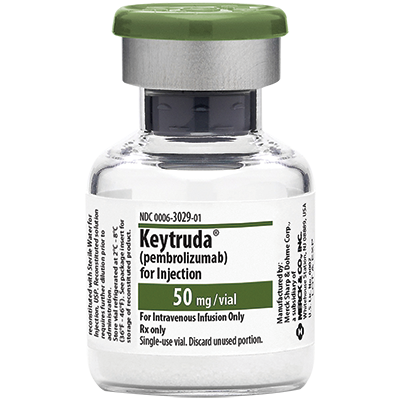Your cart is currently empty!
EMA recommends pembrolizumab for the adjuvant treatment of RCC

Urologytimes.com reports that the European Medicines Agency’s Committee for Medicinal Products for Human Use (CHMP) has recommended approval of pembrolizumab (Keytruda) for the adjuvant treatment of adults with renal cell carcinoma (RCC) at increased risk of recurrence following nephrectomy, or following nephrectomy and resection of metastatic lesions, according to Merck (MSD) the developer of the PD-1 inhibitor.
The CHMP based its opinion on the phase 3 KEYNOTE-564 trial, which showed that at a median follow-up of approximately 24 months, the median disease-free survival (DFS) was not reached with either adjuvant pembrolizumab (n = 496) or placebo (n = 498) as per investigator assessment; however, the hazard ratio for DFS showed that pembrolizumab induced a 32% reduction in the risk of disease recurrence or death compared with placebo (HR, 0.68; P = .0010).
The European Commission will now review the opinion and make a final decision on approval. An approval would make pembrolizumab commercially available for this indication in the European Union, as well as Iceland, Norway, and Liechtenstein.
“Patients in Europe with earlier-stage renal cell carcinoma, who are at increased risk of recurrence following nephrectomy, have not had an approved treatment option in the adjuvant setting that can help reduce the risk of their cancer returning,” Scot Ebbinghaus, MD, vice president, clinical research, Merck Research Laboratories, stated in a news release. “This positive CHMP opinion for Keytruda is an important step forward in bringing adjuvant immunotherapy to these patients and demonstrates Merck’s progress in providing new options to treat earlier stages of cancer.
In the double-blind, multicenter, phase 3 KEYNOTE-564 study (NCT03142334), investigators explored pembrolizumab vs placebo following nephrectomy in patients with clear cell RCC. Specifically, patients’ disease had to meet criteria that categorized them as high risk for recurrence, which included: pT2, grade 4 or sarcomatoid, N0, M0; pT3, any grade, N0, M0; pT4, any grade, N0, M0; any pT, any grade, N-positive, M0; or M1 with no evidence of disease after surgery.
Patients must have undergone nephrectomy within 12 weeks prior to randomization, could not have previously received systemic treatment, had to have an ECOG performance status of 0 or 1, and a tissue sample must have been obtainable for PD-L1 assessment.
All patients were randomized 1:1 to receive pembrolizumab at 200 mg every 3 weeks or placebo every 3 weeks, both for approximately 1 year. The primary end point of the trial was investigator-assessed DFS; secondary end points were overall survival (OS) and safety.
At 1 year, the estimated DFS rates were 85.7% and 76.2% with pembrolizumab and placebo, respectively. At 2 years, these rates were 77.3% and 68.1%, respectively.
The OS data are immature, with 3.6% (n = 18) and 6.6% (n = 33) events occurring in the pembrolizumab and placebo arms, respectively. The median OS has not yet been reached in either arm but is trending favorably toward the PD-1 inhibitor (HR, 0.54; 95% CI, 0.30-0.96; P = .0164); however, this has not cross the prespecified boundary of statistical significance.
The estimated 2-year OS rates are 96.6% for pembrolizumab and 93.5% for placebo. Additional follow-up is planned for OS.
Read the full story HERE on urologytimes.com




